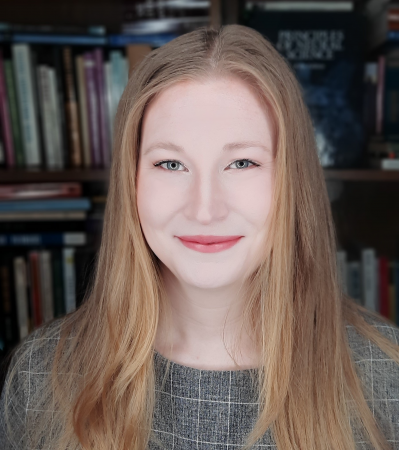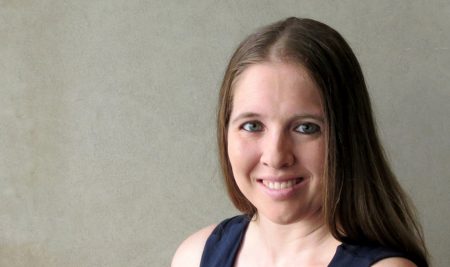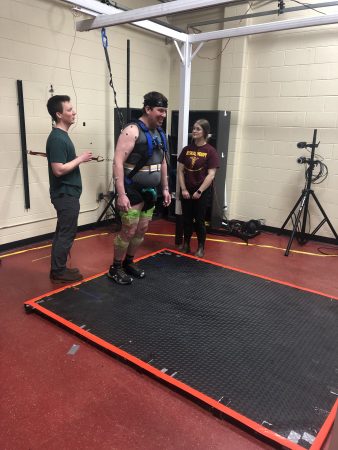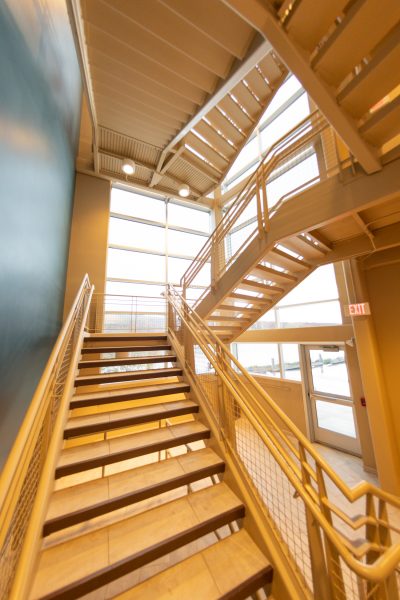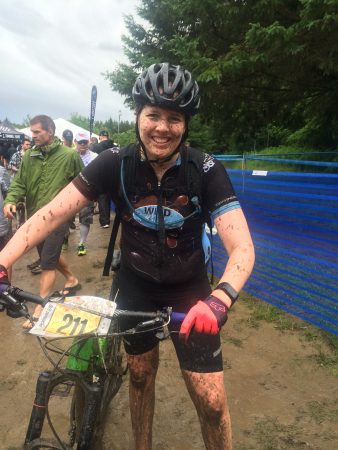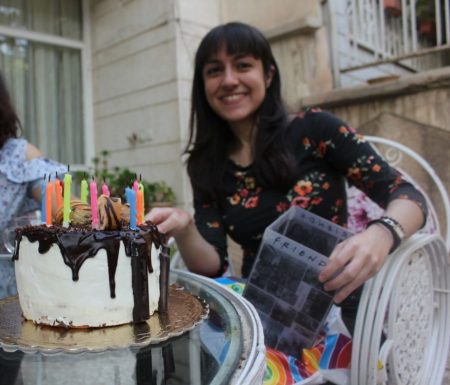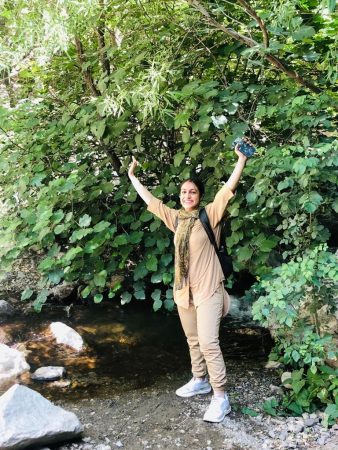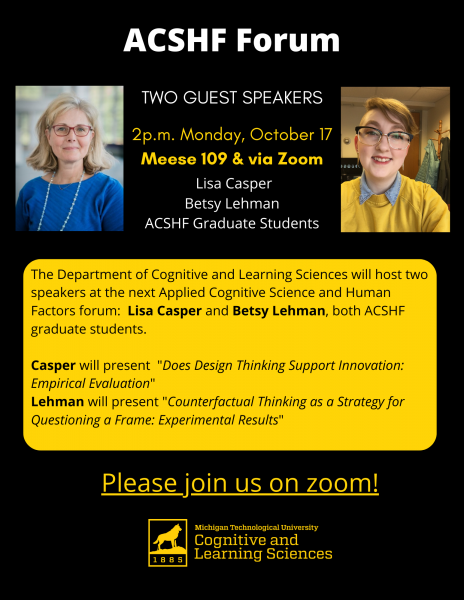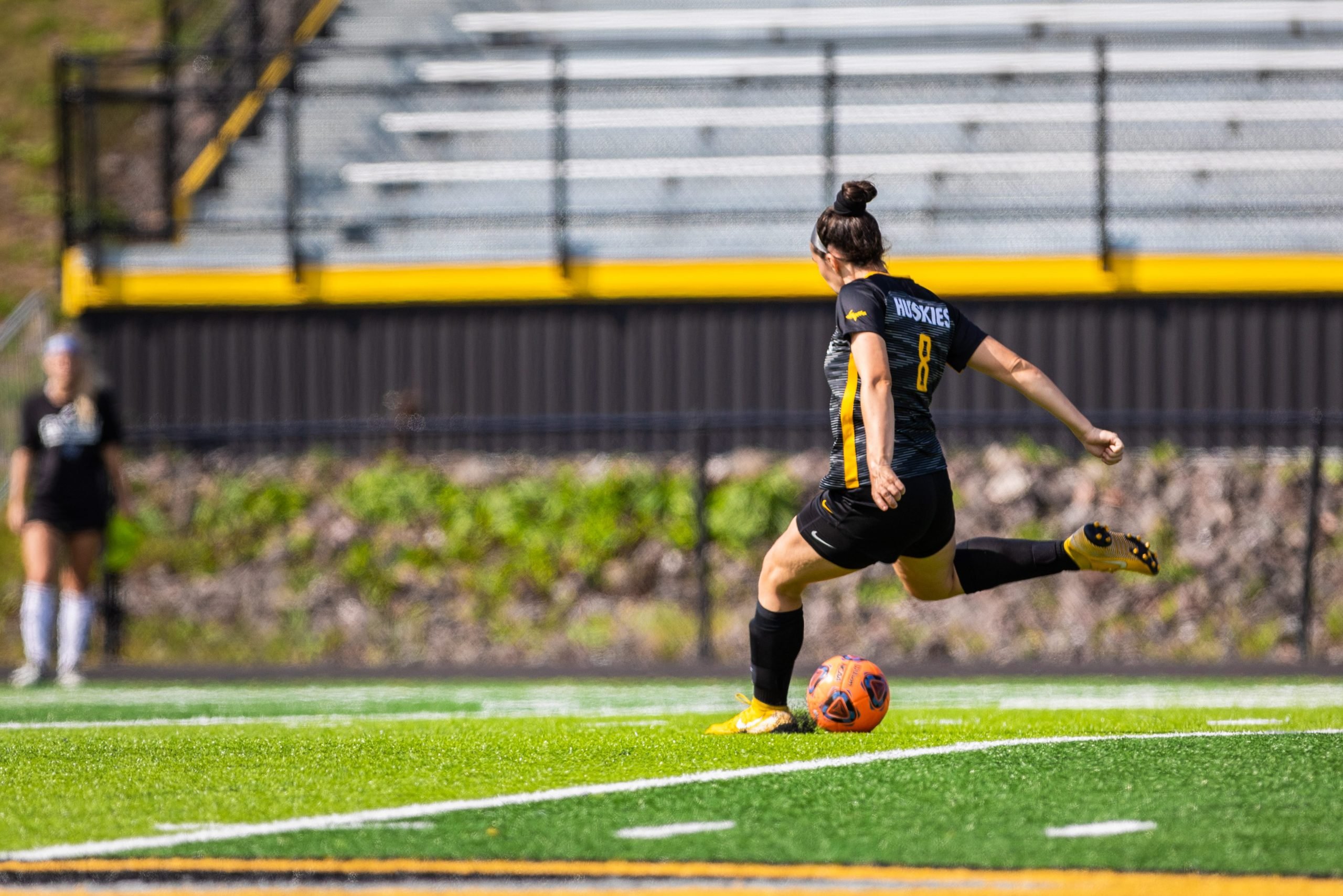Each semester, the Michigan Tech Graduate School awards Finishing Fellowships that provide support to PhD candidates who are close to completing their degrees. These fellowships are available through the generosity of alumni and friends of the University. They are intended to recognize outstanding PhD candidates who are in need of financial support to finish their degrees and are also contributing to the attainment of goals outlined in The Michigan Tech Plan.
This spring’s 2023 Doctoral Finishing Fellowship recipients include Applied Cognitive Science and Human Factors (ACSHF) PhD candidate Alexandra (Alex) Watral. Alex is advised by Dr. Kevin Trewartha and her research involves motor learning as a sensitive behavioral marker of early Alzheimer’s Disease. Read on for more details of Alex’s research in her personal statement as follows.
My interests lie at the intersection of accessibility and efficiency. For this reason, I transitioned away from clinical work and started my PhD in Applied Cognitive Science and Human Factors in January 2019 under the guidance of Dr. Kevin Trewartha. From day one, my research has focused on developing new tools for assessing cognitive decline in older adults through the study of motor skill learning using a specialized robotic device.
My dissertation research focuses on the use of two novel motor skill learning tasks to distinguish between healthy aging, mild cognitive impairment, and the early stages of Alzheimer’s disease. Cognitive decline associated with Alzheimer’s is typically measured using neuropsychological tests that lack sensitivity and specificity to subtle changes in cognitive function associated with disease progression. As such, these tests struggle to correctly diagnoses patients with pre-clinical dementia symptoms (such as mild cognitive impairment) or the early stage of Alzheimer’s disease. Recent research, however, has shown that the ability to adapt our movements to learn a new motor skill may relate to changes in learning and memory that occur early in the development of the disease. My dissertation will explore the relationship between data collected from two motor learning tasks and data collected through a typical battery of neuropsychological tests to diagnose Alzheimer’s-type dementia. We expect that these motor learning tasks can go above and beyond the ability of the neuropsychological battery to detect changes in cognitive functioning. Importantly, these motor learning tasks take about half the time to complete compared to the standard diagnostic procedures. By showing that these tasks are sensitive to subtle changes in cognitive decline, we can increase certainty in the proper diagnosis while minimizing the time and costs associated with the diagnostic procedure. This could lead to earlier and more efficient diagnoses and subsequent earlier treatment to slow the progression of cognitive decline, thereby improving patient and caregiver quality of life.
I would like to thank the Graduate School Awards Advisory Panel for this fellowship, and my advisor, Dr. Kevin Trewartha, for his consistent support and guidance over the last four years.
Michigan Tech’s Department of Cognitive and Learning Sciences offers bachelor of science degrees in Psychology and Human Factors, along with a Minor in Psychology. We also offer an Accelerated Masters degree in Applied Cognitive Science and Human Factors (ACSHF), which typically requires only one additional year of course work. Our graduate program includes masters and doctoral degrees in Applied Cognitive Science and Human Factors (ACSHF).
Questions? Contact us at cls@mtu.edu. And follow us @clsmtu on Instagram and Facebook for the latest happenings.
